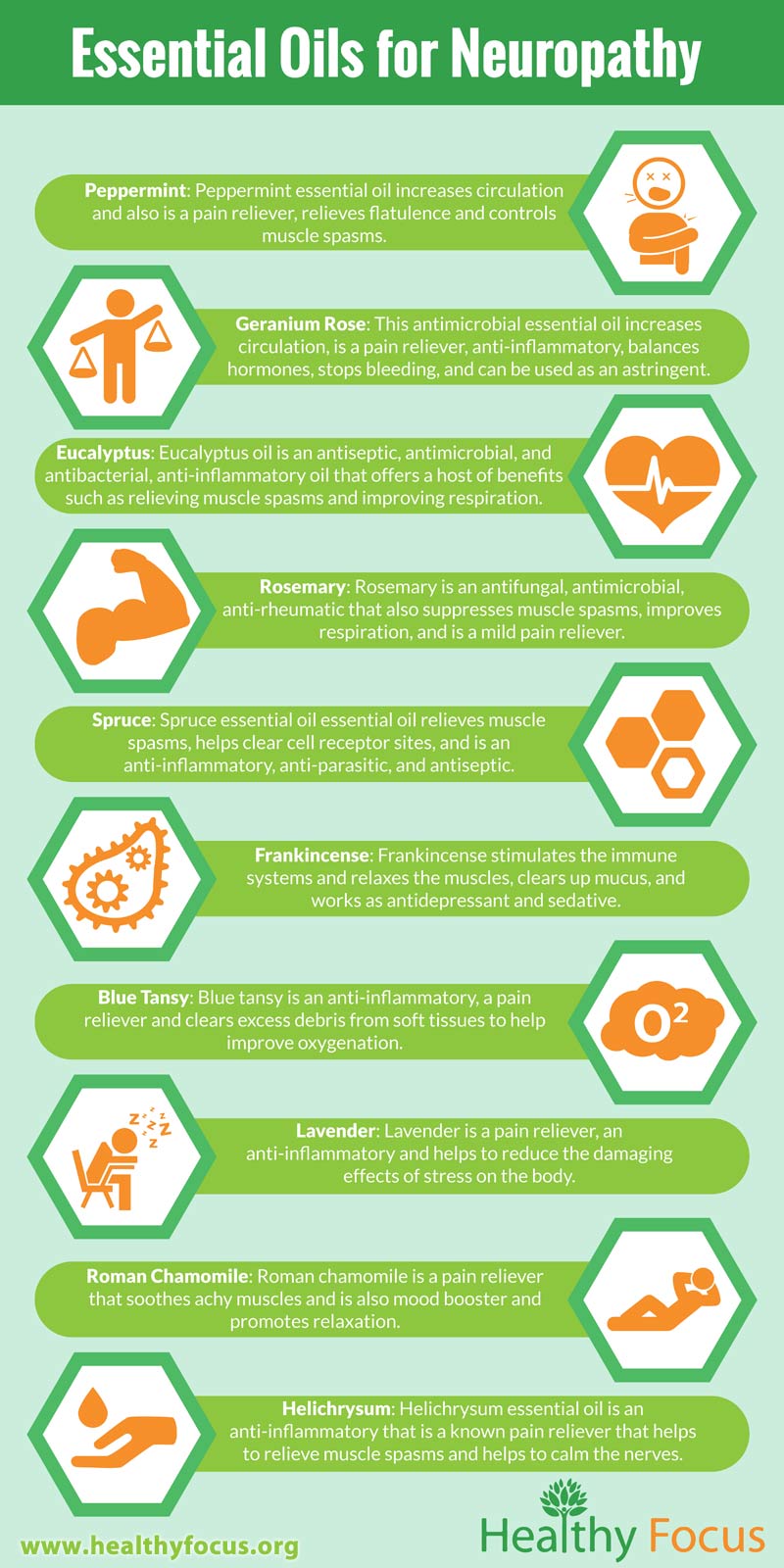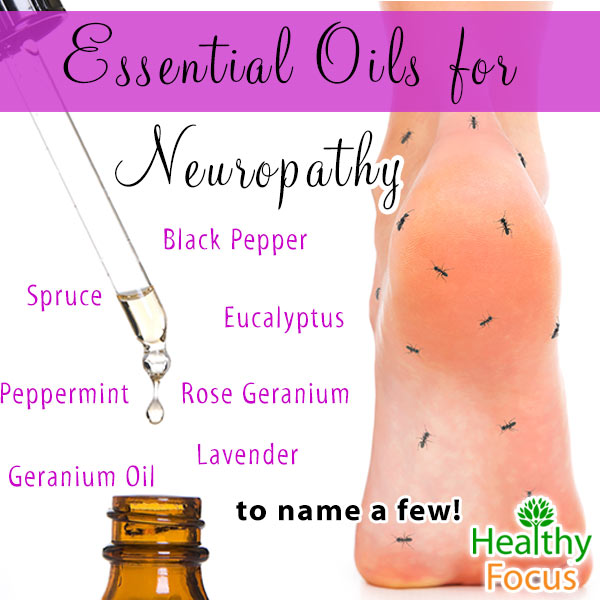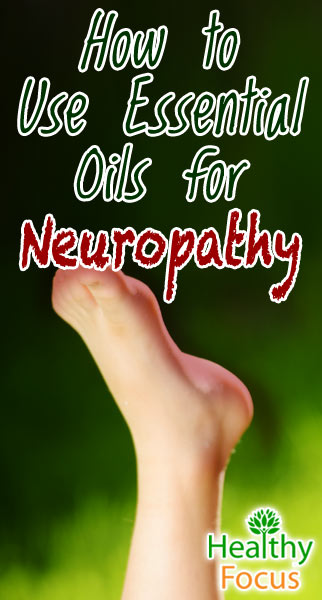Last Updated on April 3, 2019 by Marc Seward
What is Neuropathy?
Chances are, you either suffer from neuropathy yourself or may know someone with this disorder..
Neuropathy is a painful condition that occurs when there is damage to the peripheral nervous system.
The peripheral nervous system connects the nerves from the central nervous system (brain and spinal cord) to the rest of the body, including the internal organs, skin, muscles, hands, feet, legs, mouth, and face.
These are responsible for sending messages about physical sensations back to your brain.
However, when these nerves have suffered significant damage or are destroyed, these nerves may no longer do their job, resulting in a disorder called neuropathy.
This means that you may not feel physical pain when something is hurting you or your brain may send pain signals when you have not suffered injury.
There are three different nerve groups and neuropathy can affect one or all three:
- Sensory nerves, connected to your skin, which receive messages such as pain, heat, or touch.
- Motor nerves, connected to your muscles, which dictate how they move.
- Autonomic nerves, connected to your internal organs, which control such functions as heart rate, blood pressure, bladder function, and digestion.
Despite the grim nature of this disorder, there are many treatments, such as the use of essential oils, which can alleviate these painful symptoms and make living with neuropathy more manageable.
Neuropathy Symptoms
The symptoms of neuropathy may limit a person’s activities and decrease their ability to live a normal life.
These symptoms may include:
- Tingling in the hands and feet, which may eventually extend to the arms and legs
- Numbness in the hands and feet
- Sharp, stabbing pains or a burning sensation
- A decrease in motor function such as dropping things from your hands
- Lack of coordination and falling down
- Extreme sensitivity to touch
- Muscle weakness or heavy feeling limbs
If the autonomic nerves are affected, you may experience the following symptoms:
- Digestive and bladder problems
- A heat intolerance or a change in sweating patterns
- Change in blood pressure which may result in a feeling of being light-headed or dizziness
Causes of Neuropathy
Neuropathy is a common disorder that can occur due to a number of factors, which include:
- Hereditary: People who have a family history of neuropathy have a higher risk of developing the disorder.
- Diabetes: Diabetes is one of the #1 factors contributing to the development of neuropathy, affecting over half of diabetes sufferers. This is the result of unregulated blood sugar levels, obesity, and high blood pressure in the diabetes patients over the age of 40.
- Autoimmune diseases: Disorders affecting the immune system such as lupus or rheumatoid arthritis are known to contribute to the development of neuropathy.
- Disease: Other diseases such as liver disease, kidney disease, hypothyroidism, and connective tissue disorders may lead to the development of neuropathy.
- Alcoholism: People with severe alcoholism are at a higher risk for developing neuropathy as alcohol can have a toxic effect on nerve tissue.
- Medications: Taking certain medications may result in developing neuropathy. These drugs may include medications that treat cancer, seizures, blood pressure, and blood pressure.
- Toxins: Exposure to insecticides, solvents, and toxic chemicals can result in nerve damage. Exposure to heavy metals such as mercury and led can also contribute to the disorder.
- Infections: Certain viruses and bacterial infections can cause neuropathy, which include Lyme disease, herpes simplex, hepatitis C, leprosy, chicken pox, shingles, Epstein-Barr virus, and HIV.
- Vitamin deficiencies: Lacking vitamins E, B1, B6, and B12 may cause neuropathy. These vitamins are vital to nerve health and functioning.
- Injury: Suffering physical injury is the most common way people damage their nerves. This may be the result of car accidents, falls, sports injuries, and fractures. Carpal tunnel syndrome is a form of neuropathy, which is the result of placing increased pressure on the nerves of the wrist from repeated motions such as typing.
- Tumors: The development of tumors can create pressure on surrounding nerves, causing damage.
Neuropathy Treatment with Essential Oils
Many find that living with neuropathy is not really living at all. They may limit their activities because they are scared they may fall, injure themselves, or may simply find it too painful to participate in activities they once enjoyed.
Fortunately, there are natural and non-invasive treatments that can help control the symptoms of neuropathy, dramatically increasing the quality of life for those suffering from neuropathy.
Essential oils address many problems associated with neuropathy, such as pain management, circulation, energy, sleep disorders, stress, anxiety, depression, and overall mood.
Research has found that several essential oils are effective in alleviating the pains associated with nerve damage.
Essential Oils : The Basics
Essential oils have been used for centuries if not longer because of their amazing healing properties. They can help to heal the body and soother the mind and can help treat a wide variety of ailments. These days essential oils are often seen as a natural and safe alternative to prescription medications. Essential oils can help people with neuropathy because they have various medicinal properties including analgesic, circulatory, antioxidant, sedative and anti-inflammatory properties.
For people with neuropathy, certain essential oils can help in the following ways:
- They can relieve pain.
- They can ease irritation and soothe the affected areas.
- They can improve circulation throughout the body.
- They have antioxidant properties that can reverse oxidative stress and protect against damage to the cells.
- They can improve digestive health.
- They can help to balance the hormones.
- Many essential oils can help people with stress and sleeping troubles which are often experienced in people with neuropathy.
Essential Oils for Neuropathy
Peppermint Oil
Peppermint essential oil increases circulation and provides nervous system support. It is also a pain reliever, controls muscle spasms, improves respiration, and relieves flatulence.
Peppermint essential oil is one of the most popular and diverse of all essential oils. Because of its cooling actions and natural analgesic effects, it may help ease some of the symptoms of neuropathy.
Although there is little research into the effects of this oil on neuropathy, one study done in 2002 found that peppermint essential oil applied topically helped treat an elderly woman suffering from neuralgia. (2)
The woman in question had proven difficult to treat and was resistant to the standard therapies given to her. However, she experienced almost instant pain relief following the application of peppermint oil . This relief lasted for some six hours.
There is also some evidence to suggest that peppermint oil can help treat digestive troubles of the sort suffered by many people with neuropathy.
Black Pepper Oil
Black Pepper is an antiviral essential oil that provides nervous system support, increases circulation and is a known pain reliever.
This powerful essential oil also gives skin a healthy ruddy glow, aids in digestion and relieves flatulence.
Black Pepper is an antiviral essential oil that provides nervous system support, increases circulation and is a known pain reliever. This powerful essential oil also gives skin a healthy ruddy glow, aids in digestion and relieves flatulence.
Rose Geranium Oil
Rose Geranium provides circulatory support, increasing sluggish circulation.
This antimicrobial essential oil is also a pain reliever, anti-inflammatory, balances hormones, stops bleeding, and can be used as an astringent.
Eucalyptus Oil
Eucalyptus Essential Oil is an antiseptic, antimicrobial, and antibacterial, anti-inflammatory oil that offers a host of benefits such as relieving muscle spasms and improving respiration.
Geranium Oil
Geranium essential oil has a variety of well-known therapeutic benefits and according to recent research; it also has great potential when it comes to neuropathic pain.
Scientific studies have demonstrated that geranium essential oil applied topically can temporarily reduce the pain associated with neuropathy. One clinical trial compared the effects of geranium essential oil in 3 different strengths (10%, 50%, and 100%) with Zostrix ( a commercial ointment made with capsaicin) and a placebo.
Patients were asked to compare levels of pain at various intervals for the first hour following treatment.
Researchers discovered that those treated with geranium essential oil experienced significantly reduced levels of pain compared to the other 2 groups and that the pain reduction was greater depending on the concentration of oil administered. (1)
Rosemary Oil
Rosemary Oil increases circulation, relaxes muscle fibers, and removes lactic acid. This incredible essential oil is an antifungal, antimicrobial, anti-rheumatic that also suppresses muscle spasms, improves respiration, and is a mild pain reliever.
Spruce Oil
Spruce Essential Oil helps improve circulation, stimulates the immune system, and promotes muscle repair.
This essential oil relieves muscle spasms, helps clear cell receptor sites, and is an anti-inflammatory, antiparasitic, and antiseptic.
Frankincense Oil
Frankincense stimulates the immune systems and relaxes the muscles. This essential oil also is an antiseptic that improves respiration, clears up mucus, and works as antidepressant and sedative. Many people find the pain of neuropathy to be worse at night and frankincense essential oil either inhaled or massaged may help sufferers to get a better night of sleep.
Blue Tansy Oil
Blue tansy is an anti-inflammatory and a pain reliever. It also relieves an itch, helps clear cell receptor sites and clears excess debris from soft tissues to help improve oxygenation.
Lavender Oil
Lavender is a pain reliever and anti-inflammatory. This hardworking essential oil is also an antidepressant and helps to reduce the damaging effects of stress on the body. Like frankincense essential oil, lavender can help people with neuropathy to overcome their sleep difficulties and get a more relaxing sleep.
Rosewood Oil
Rosewood is a pain reliever and increases immune system function. Rosewood essential oil an anti-inflammatory and an antibacterial that works overtime to increase mood by working as an antidepressant and stress reliever.
Roman Chamomile Oil
Roman Chamomile is a pain reliever that soothes achy muscles. This essential oil is also mood booster and promotes relaxation.
Helichrysum Oil
Helichrysum essential oil is an anti-inflammatory that is a known pain reliever. It also helps to relieve muscle spasms and helps to calm the nerves. Helichrysum is considered to be one of the best essential oils for easing nerve pain and providing overall nervous system support.
It blends very well with many of the other essential oils mentioned here.
Holy Basil Oil
Holy Basil essential oil which is also known as tulsi oil is another excellent choice of oil to treat nerve pain. Holy basil has been considered a sacred plant by Hindus for many years and is used during religious ceremonies and meditation.
When it comes to nerve pain, there is evidence from research conducted on animals that holy basil oil can be very effective.
Research published in the Journal of Ethnopharmacology was conducted on rats with sciatic nerve neuropathy having had their sciatic nerves severed.
An extract of holy basil was used to treat the rats for the 10 days following surgery. Researchers noted that holy basil both reduced the symptoms of nerve damage and helped make the nerves more receptive to stimuli.
Birch Oil
Among its many other health benefits, birch essential oil can help combat pain in the nerves, muscles, and joints. It is considered to be an excellent remedy for pain associated with headaches and toothache and is also a powerful antispasmodic which can help alleviate cramping in the body.
Many people who suffer from neuropathy have had success with birch essential oil.
Clove Bud Oil
Clove oil is probably best known for its ability to numb the pain of a toothache but it has so many more uses than just dental care. It is used by many people suffering from neuropathy to ease their symptoms.
According to animal research conducted in Scotland; the euganol contained in clove essential oil was able to improve the nerve function of rats suffering from diabetic neuropathy.
Clove bud essential oil also has excellent anti-inflammatory and antioxidant activity and can be helpful in treating menstrual pain and emotional issues such as depression which may result from neuropathy.
Essential Oil Blend
Many essential oils blend well together and actually perform better in combination. In 2010, researchers analyzed the effects of an essential oil blend on 60 participants suffering from foot pain as a result of neuropathy. The blend including tea tree, eualyptus, bergamot, geranium and lavender essential oils.
The results were very impressive. 56 of the 60 participants reported that their pain had decreased in just 30 minutes while only 26 of 60 participants in the placebo group reported feeling less pain. (3)
There are many ways you can apply essential oils to help relieve the symptoms of neuropathy:
- Massage: Mix 10 to 12 drops of essential oil with one ounce of carrier oil. The most recommended carrier oil for this method is coconut oil as it is clear, and light, and does not oxidize. Massage the mixture into the affected area.
- Bath: Mix 4 to 8 drops of essential oil with one teaspoon of carrier oil. Once again, coconut oil is the recommended carrier oil. To relieve achy muscles, add Epsom salt. Fill the tub with warm water and immerse yourself for a duration of 15 minutes, making sure to massage the affected areas.
- Compress: Fill a container with water. Use warm water to inspire relaxation and increase circulation or use water to energize and relieve inflammation. Add 3 to 5 drops of essential to the container and then stir. Soak a washcloth in the container of water, wring, then apply to the affected area.
Precautions
Although essential oils are an amazing blessing and can help to treat a variety of ailments, they should always be used with care. Essential oils are very strong and when used incorrectly, they might cause a reaction.
- Never ingest your essential oils.
- Before applying the essential oil to your skin, it is important to dilute them well with a carrier oil. Many vegetable oils work well as carrier oils and some of the most popular are coconut, sweet almond and jojoba.
- Before applying the oil, make sure that you perform a patch test on a discrete area of skin to make sure you do not react.
- Pregnant women should always consult their doctor before using an essential oil for the first time.
- Make sure that you buy the best quality essential oils from a reputable source. Read the labels to check for any additional ingredients.
(1) http://www.reunionpn.com/Articles.asp?ID=243
(2) http://www.ncbi.nlm.nih.gov/pubmed/12048423
(3) https://www.ncbi.nlm.nih.gov/pmc/articles/PMC2883533/




Leave a Reply
You must be logged in to post a comment.